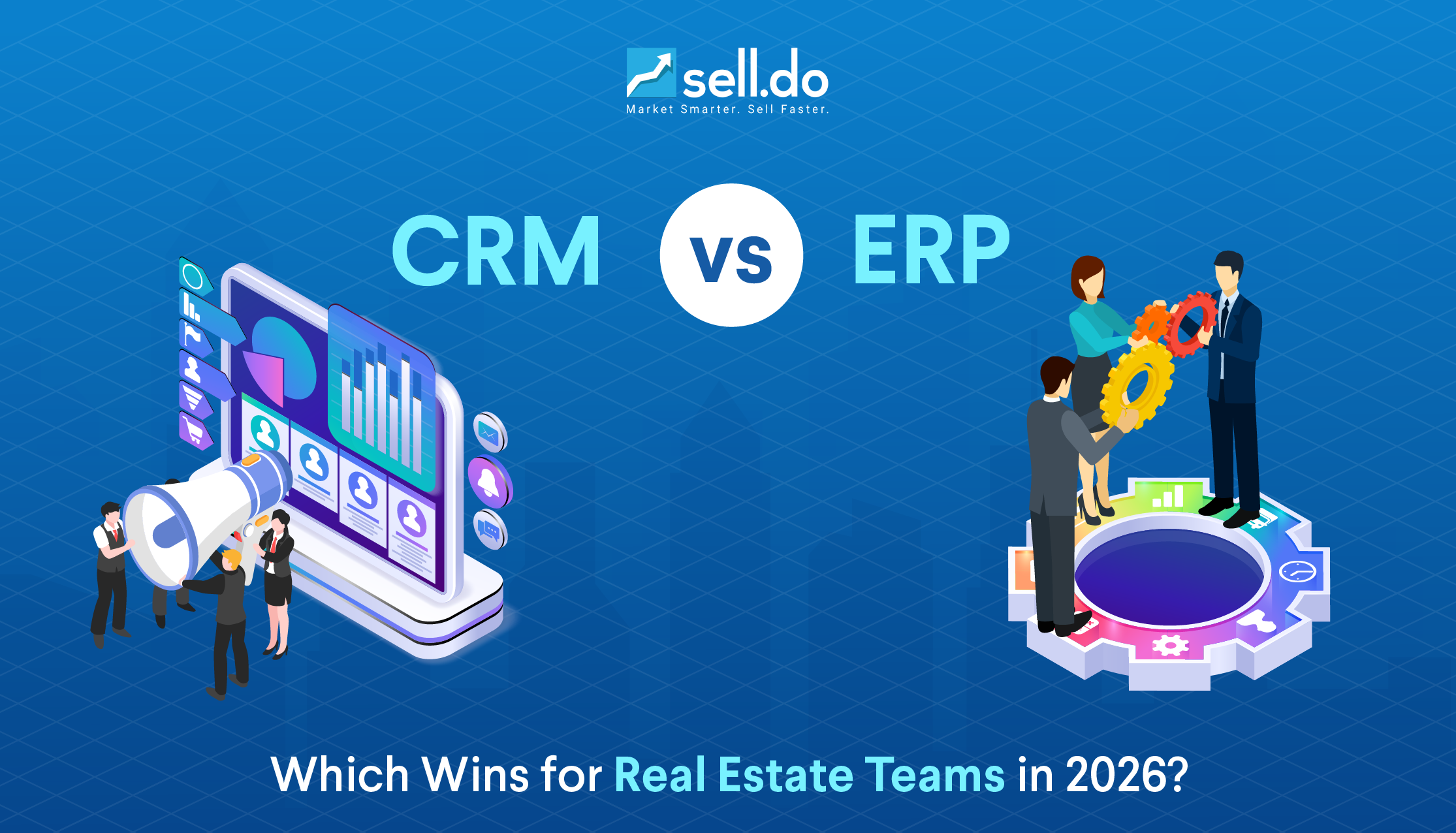In the complex and evolving world of real estate, Customer Relationship Management (CRM) systems stand out as essential tools, enhancing customer relations and tackling numerous business challenges. Specifically designed for the real estate industry, these systems adeptly handle the unique hurdles associated with long buying cycles and diverse client needs.
This blog aims to explore the most pressing challenges that real estate professionals face and how a real estate CRM solution can effectively address them.
What is a CRM Tool?
A CRM (Customer Relationship Management) tool is a comprehensive system designed to manage all aspects of an organization's interactions with current and potential customers. In the realm of real estate, a CRM tool becomes an indispensable asset, enhancing work efficiency and overall functioning.
This centralized system allows real estate professionals to keep track of client interactions, manage properties, monitor sales progress, and analyze market trends all in one place.
By automating routine tasks, providing valuable insights, and facilitating better client engagement, a CRM tool empowers real estate professionals and firms to operate more effectively and deliver superior customer experiences.
-
Lead Tracking Challenges:
In real estate, the journey often begins with efficiently tracking and managing leads. A CRM system automates this process, ensuring no potential client is overlooked. It categorizes leads based on their interaction, interest level, and likelihood of conversion. This targeted approach enables professionals to prioritize their efforts and engage with leads more effectively, significantly boosting their chances of closing deals.
-
Comprehensive Marketing Campaigns:
Addressing marketing shortfalls is crucial in real estate. A CRM assists in developing targeted real estate email campaigns and other marketing strategies, ensuring messages reach the right audience at the right time. It helps in segmenting audiences and creating personalized messages, thereby increasing the impact and efficiency of marketing efforts.
-
Data Management Hurdles:
Handling vast amounts of data is a significant property management challenge. CRM systems offer robust data management capabilities, organizing and storing client information, transaction records, and property details in a structured manner. This organization allows professionals to access and utilize data efficiently, leading to better decision-making and streamlined operations.
-
Forecasting Challenges:
Accurate market forecasting is vital but often complex, leading to real estate problems. A CRM equipped with advanced analytics tools can process market trends and historical data, aiding professionals in making informed predictions about future market movements. This reduces forecasting errors and aids in strategic planning.
-
Customer Interaction Issues
Consistent and effective customer communication is a challenge in the real estate industry. A CRM manages all aspects of client communication, ensuring regular and personalized interaction. This systematic approach is essential for building trust, fostering long-term relationships, and enhancing customer satisfaction.
-
Booking Process Errors:
Booking errors can lead to client dissatisfaction and missed opportunities. A CRM automates and accurately tracks appointments, viewings, and follow-ups, ensuring a seamless booking experience. It helps professionals stay organized, avoid double bookings, and maintain a professional image, leading to better customer experiences and increased trust.
-
Managing Multiple Channel Partners:
Collaborating with various channel partners is a common challenge for real estate professionals. A CRM simplifies this process by offering a unified platform for communication and coordination with brokers, professionals, and other stakeholders. It ensures that all parties are updated, collaborations are smooth, and transactions are efficient.
Conclusion
The challenges of lead tracking, marketing, data management, forecasting, customer contact, booking processes, and managing channel partners are prevalent in the real estate sector. A real estate CRM solution is explicitly designed to address these issues, providing a comprehensive toolkit to enhance efficiency, improve customer satisfaction and streamline operations.
For professionals looking to overcome these hurdles, Sell.Do Real Estate CRM emerges as an ideal choice, offering tailored features to navigate the industry's complexities with ease.






Leave a comment
Comments (0)
Be the first one to comment.